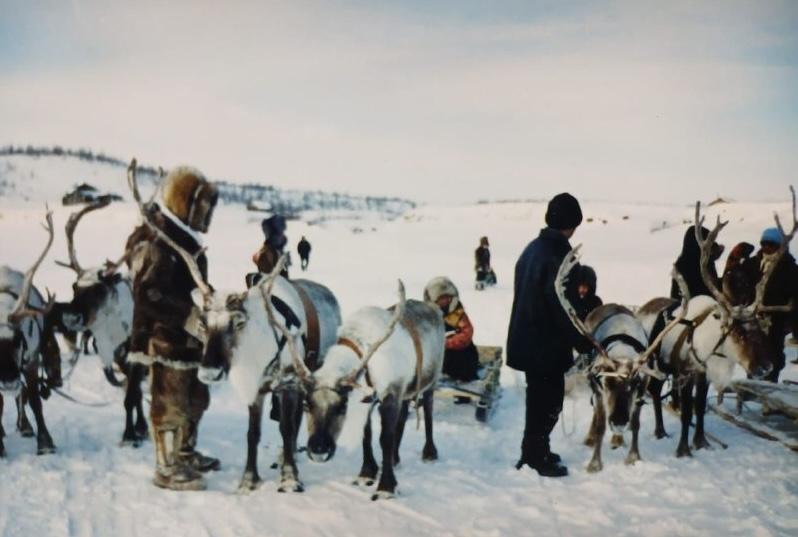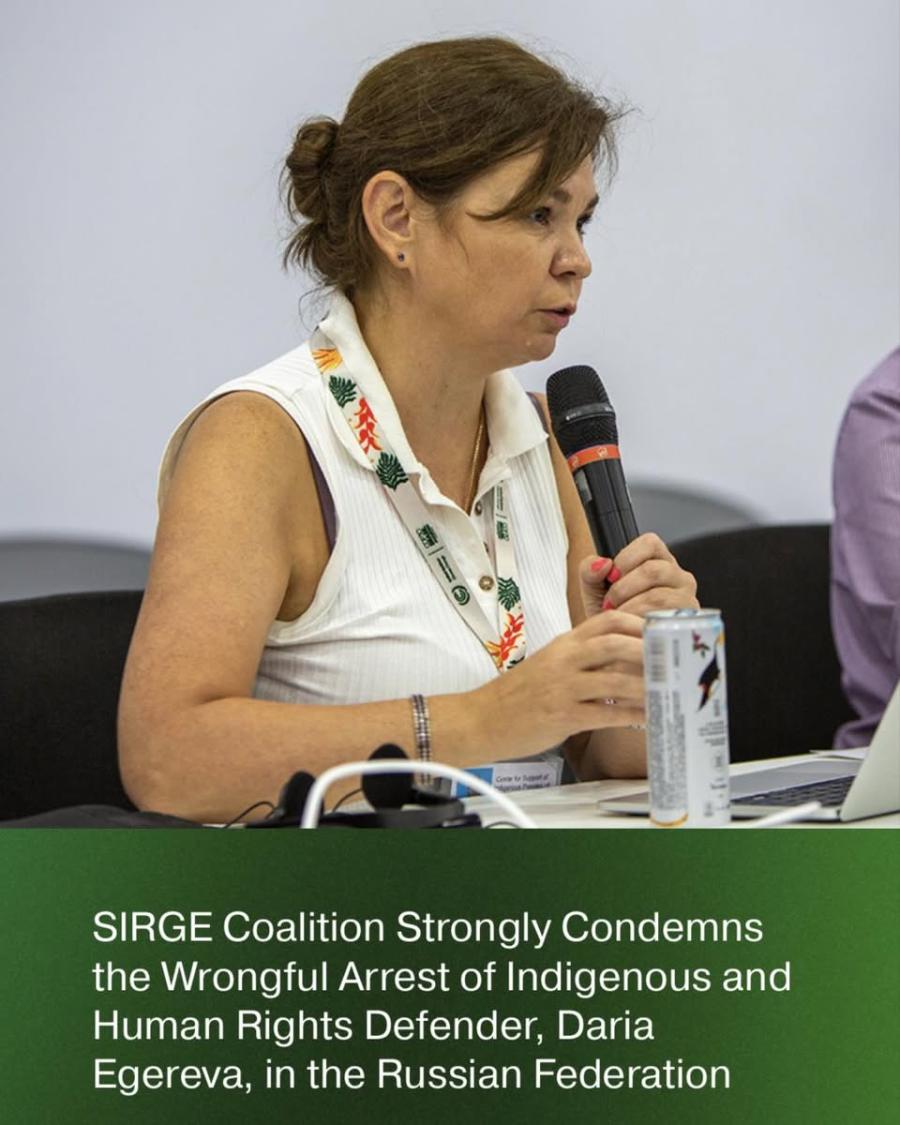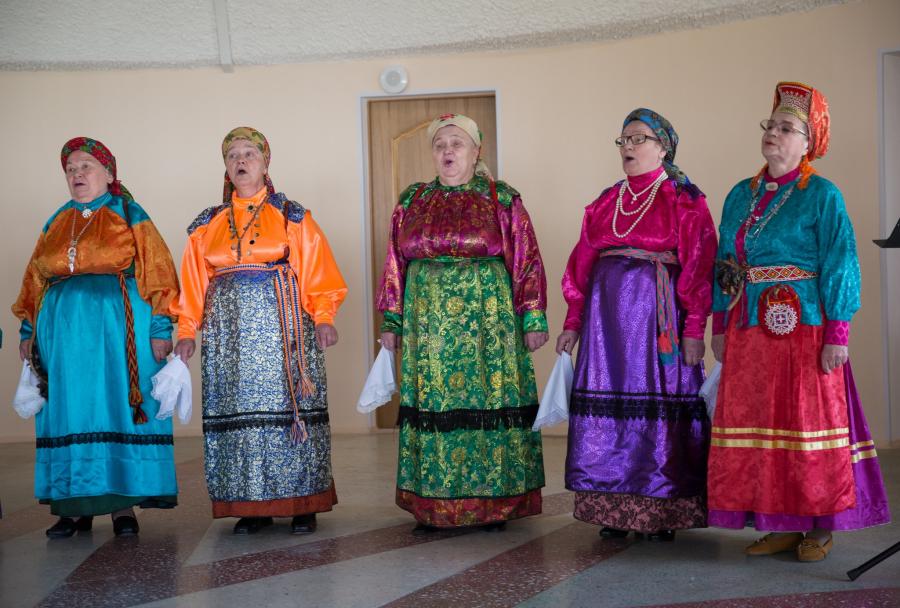
By CS Staff
In recent months, two United Nations reports have been released on the situation of human rights in the Russian Federation: the Concluding Observations on the seventh periodic report of the Russian Federation by the Committee on Economic, Social and Cultural Rights (CESCR) and the Report of the Special Rapporteur on the situation of human rights in the Russian Federation, Mariana Katzarova, both highlight violations of Indigenous Peoples' rights.
At the outset of its report and recommendations, the CESCR expressed concern about human rights defenders, including those working on environmental issues and the rights of Indigenous Peoples, as they are subject to various forms of pressure and reprisals in connection with their human rights activities. Therefore, the CESCR recommended strengthening the protection of human rights defenders, journalists, and lawyers working on economic, social, and cultural rights, as well as their family members. The CESCR noted the absence of a comprehensive national action plan on business and human rights, as well as the limited legal obligations requiring companies to conduct effective human rights due diligence. In this regard, it is concerning that environmental and social impact assessments, as well as consultation processes with affected Indigenous Peoples, including in the context of extractive activities, may not always be conducted in a manner that effectively prevents adverse impacts on the enjoyment of rights. The recommendation on this issue noted that business entities, including their suppliers, should be held accountable for violations of economic, social, and cultural rights, with particular attention to the rights of Indigenous Peoples, environmental impacts, and arbitrary expropriation, including in the context of extractive activities.
In a special section on the rights of Indigenous Peoples, the CESCR expressed concern about insufficient upholding of the right to Free, Prior and Informed Consent of Indigenous Peoples for any change to the use of their lands and territories and representation of Indigenous Peoples in local decision-making bodies, and limited access of Indigenous Peoples to healthcare, education, and other basic services.
The CESCR recommended: Strengthening efforts to ensure the right of Indigenous Peoples to own, use, control, and develop the lands, territories, and resources they have traditionally owned, occupied, or otherwise used or acquired; Ensuring systematic and transparent prior consultations to obtain the Free, Prior and Informed Consent of Indigenous Peoples in the context of decisions that may affect them, in particular before issuing business licenses on lands and territories they have traditionally owned, occupied, or used; taking all necessary measures to ensure full access of Indigenous Peoples to health care, education, and other basic services, and; Considering ratifying the Indigenous and Tribal Peoples Convention, 1989 (No. 169) of the International Labour Organization (ILO).
The CESCR expressed concern about Russia's implementation of its Nationally Determined Contributions (NDCs) under the Paris Agreement, which could lead to serious and disproportionate impacts of climate change in the Arctic region and have significant implications for the enjoyment of rights, particularly for Indigenous Peoples.
Addressing climate change, CESCR expressed concern that current measures may be insufficient to address the impacts of climate change, including extreme weather events, as well as long-term changes caused by shifts in precipitation patterns, thawing permafrost, and rising temperatures, particularly in the Arctic, which disproportionately affect Indigenous Peoples, as well as other inhabitants of the Far North, Siberia, and the Far East.
Also, it was emphasized that poverty and extreme poverty rates in Russia remain particularly high among Indigenous Peoples and recommended increasing resources allocated to conducting a thorough assessment of existing programs needed to reduce poverty, with a particular focus on Indigenous Peoples, ensuring the integration of a human rights-based approach. Disparities in the quality and availability of health services between urban and rural areas, as well as between Indigenous Peoples and the general population, a significant gender gap in life expectancy, and generally inadequate health infrastructure are also significant challenges.
The report also found that access to schooling and completion rates at all levels, including secondary and post-secondary education, are significantly lower for Indigenous children compared to the general population, and recommended intensifying efforts to expand access to schooling, with a particular focus on ensuring that Indigenous Peoples have equal opportunities to access quality education, and reviewing educational materials, practices, and programs.
The CESCR also expressed concern about the risk of extinction of many Indigenous languages, as well as reports of arbitrary restrictions imposed on Indigenous Peoples' traditional cultural livelihoods, such as hunting and fishing. In this regard, it reiterated its previous recommendation to strengthen efforts to promote and preserve Indigenous languages and to remove or amend any restrictions that may hinder Indigenous Peoples' ability to maintain their traditional cultural livelihoods, including hunting and fishing.
The second report of the Special Rapporteur on the situation of human rights in the Russian Federation notes the intensification of repression and the strengthening of authoritarian control. The vague and overly broad legal framework in the Russian Federation continues to be used for politically motivated persecution. The systematic and targeted application of laws on "foreign agents," "undesirable organizations," "discrediting the armed forces," and the dissemination of "fake news" about the army ("military censorship"), as well as the abuse of laws on "terrorism" and "extremism," constitute a strategy of legal instrumentalization aimed at further suppressing dissent and criticism. She also noted the systematic criminalization and discrimination against the peaceful activities of human rights defenders, where the legitimate exercise of human rights is framed as "threats to security" and such individuals are portrayed as "enemies of the State" to justify and intensify wider repression.
Specifically, she noted that since 2022, Russian authorities have opened 1,259 criminal cases against individuals for their statements, including criticism of the state. In 2024, cases related to freedom of expression accounted for half of all politically motivated prosecutions, with sentences becoming increasingly harsh, some exceeding 10 years in prison. Russia has begun classifying organizations targeting members of national minorities and Indigenous Peoples as "terrorist organizations."
Noting the situation with environmental defenders, the Special Rapporteur highlighted that between 2022 and 2023, nearly 500 environmental defenders were persecuted. Sergei Kechimov, an Indigenous Khanty shaman who fought the oil giant Surgutneftegaz for a sacred lake, died during a lengthy persecution for his environmental activities. Since 2013, 34 environmental organizations have ceased operations due to being designated as "foreign agents."
The Special Rapporteur highlighted that torture and ill-treatment have become another tool—a strategy of repression—and remain widespread and systematic. Currently, this tool has become the use of coercive psychiatry, whereby criminal prosecution is replaced by indefinite psychiatric measures. As of August 2025, at least 51 individuals had been subjected to coercive psychiatric measures, one of whom is Indigenous Yakut shaman Alexander Gabyshev, who is currently in a psychiatric hospital.
The Special Rapporteur points out that Russia's Indigenous Peoples remain among the most vulnerable groups, some of whom are on the brink of extinction. Due to restrictive definitions of Indigenous Peoples in Russian legislation, only 47 of them are officially recognized. Indigenous Peoples also suffer from legislation on "foreign agents," "undesirable organizations," "extremism," and "terrorism." In 2024, 172 organizations associated with ethnic minorities or Indigenous Peoples were designated as “terrorist” by the Supreme Court.
In May 2025, the Russian Prosecutor General's Office added the International Indigenous Fund for Development and Solidarity "Batani" to its list of "undesirable" organizations, citing its participation in international forums, including the United Nations. In response to its engagement with UN mechanisms, Russian authorities accused Batani of promoting "anti-Russian ideas" under the guise of working on Indigenous rights.
At the same time, Indigenous Peoples continue to be disproportionately recruited for military mobilization, even in areas where Indigenous Peoples risk extinction due to military losses. In this regard, she recommends ending censorship and persecution of dissent, as well as releasing all those detained for exercising their rights, including the rights to freedom of expression and assembly; Immediately ceasing all medical personnel, civilian and military, from participating in torture and/or ill-treatment of detainees; Repealing all legislation regarding "foreign agents" and "undesirable organizations," and immediately release and rehabilitate those convicted on such charges; Reversing the 2024 Supreme Court decision designating 172 ethnic and Indigenous organizations as "terrorists"; and ending the persecution of organizations and defenders of Indigenous Peoples and national minorities who are labeled "extremists" and "terrorists." A full list of her recommendations can be accessed in her report (pages 18-21).



